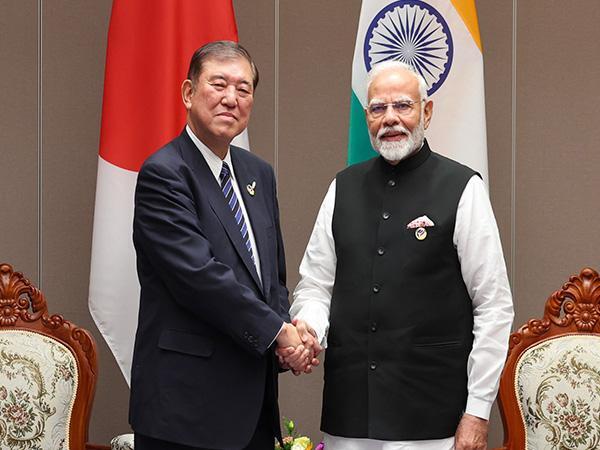
Our Technology & India’s Talent Complement Each Other: Japan PM
The India-Japan joint economic forum, a meeting of minds between two of the world’s most vibrant economies, took place recently, with Japan’s Prime Minister Shigeru Ishiba addressing the gathering alongside Indian Prime Minister Narendra Modi. In a significant development, the Japanese PM emphasized that the advanced technology of Japan and the outstanding talent of India complement each other perfectly, leading to a dramatic expansion of economic ties between the two nations.
The statement comes at a time when India is aggressively pushing its “Make in India” initiative, aimed at transforming the country into a global manufacturing hub. The Japanese Prime Minister’s remark underscores the significant role Japanese companies are playing in this endeavor, with many of them already making a meaningful contribution to the program.
One notable example of this collaboration is the construction of the Mumbai-Ahmedabad High Speed Rail project, which is a joint effort between Indian and Japanese companies. This ambitious project, which is set to revolutionize the country’s rail network, is a testament to the power of cooperation between two nations.
The Japanese Prime Minister’s statement highlights the convergence of interests between Japan and India, two countries that share a deep passion for innovation and technological advancement. Japan, known for its cutting-edge technology, has been a global leader in innovation for decades, while India, with its vast pool of talented professionals, has emerged as a major hub for software development and IT services.
The complementarity between Japan’s technology and India’s talent is a match made in heaven. Japan’s expertise in manufacturing, robotics, and automation can be leveraged to transform India’s manufacturing sector, while India’s talented professionals can bring a fresh perspective and innovative thinking to Japan’s technology-driven industries.
The Japan-India economic partnership has been growing rapidly in recent years, with bilateral trade reaching a record high of over $18 billion in 2020. The two nations have also been cooperating closely on various initiatives, including the “Special Strategic and Global Partnership” launched in 2014, which aims to strengthen ties in areas such as technology, defense, and education.
The collaboration between Japan and India is not limited to the manufacturing sector alone. The two nations are also working together on various infrastructure projects, including the development of smart cities, renewable energy, and transportation systems.
In the context of the “Make in India” initiative, the Japanese Prime Minister’s statement is significant, as it underscores the importance of foreign investment and technology transfer in driving India’s economic growth. The Indian government’s efforts to create a business-friendly environment and attract foreign investment have been paying off, with many Japanese companies already setting up shop in India.
The Japanese Prime Minister’s statement also highlights the importance of human resource development in driving economic growth. India’s talent pool is one of its greatest strengths, with the country producing some of the world’s best engineers, scientists, and entrepreneurs. Japan’s technology can be leveraged to develop India’s human resources, creating a win-win situation for both nations.
In conclusion, the statement by Japan’s Prime Minister Shigeru Ishiba reiterates the importance of the India-Japan economic partnership and the potential it holds for driving growth and development. The complementarity between Japan’s technology and India’s talent is a powerful combination that can help create a new era of economic cooperation between the two nations.
As the world becomes increasingly interconnected, it is imperative for countries to work together to drive economic growth and development. The India-Japan partnership is a shining example of what can be achieved when two nations with complementary strengths come together to achieve a common goal.



